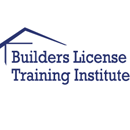Online anytime - 8-Hour Alaska Construction Techniques for Contractors Continuing Education Online Anytime
Training Provider: Builders License Training Institute
Online anytime
 No Reviews
No Reviews
We're sorry, but registration for this event has ended
View Upcoming 8-Hour Alaska Construction Techniques for Contractors Continuing Education Online Anytime In Online, Live| TICKET TYPE | PRICE | QUANTITY |
|---|---|---|
|
One Workshop Ticket more info» | $99.00 | Registration Ended |
| Registration Ended | ||
Please Note: This course is a pre-recorded online anytime seminar which allows you to be trained and certified at the convenience of your own schedule and in the luxury of your own home! Students will have up to six months of access to course content.Why Should You Take This 8-Hour Alaska Construction Techniques for Contractors Continuing Education Online Anytime Course?
This 8-Hour Construction Techniques for Contractors Continuing Education Online Anytime course provides an overview of building trade skills. A contractor or home renovator needs to be able to layout a building site; determine the elevations of a site excavation; build concrete footing and wall forms; frame and sheath floors, walls and roofs. They must develop an understanding of the many structural components associated with the entire building envelope, supplementing the hands on experience employed in the field. The information provided in this course would be advantageous for anyone seeking to start a residential building project or enter into the building industry. This course outlines the fundamental skills involved in residential construction or remodeling through text, integrated videos, diagrams and slides.
Learning objectives are provided to facilitate understanding and progress. Informal progress checks throughout the module will help you review and measure your understanding of the material. The assessment at the end of each chapter accurately reflects learning objectives. A 70% on each assessment is required to move on to the next chapter.
The Following Topics Will Be Covered:
- Building Planning and Permits
- Sitework
- Footings and Foundations
- Concrete and Concrete Reinforcement
- Masonry
- Framing/Rough Carpentry
- Roofing
What Are The Contractor Licensing Requirements in Alaska?
Alaska state law requires all general contractors to be licensed. Anyone who performs mostly commercial work and residential remodel work of less than 25% of the value of the structure must have a General Contractor License without a Residential Contractor Endorsement. However, anyone who performs new home construction, commercial work, and residential remodel work of more than 25% of the value of the home or structure being altered is required to have a General Contractor License with Residential Contractor Endorsement.
Contractor continuing education is required in Alaska. 16 Hours is required for renewal of a residential contractor endorsement. An applicant for renewal of a residential contractor endorsement for the first time shall document 8 hours of acceptable continued education. Licenses expire December 31 of even number years. Renewal of Endorsement will coincide with renewal of the General Contractor registration.
Get a Residential Contractor Endorsement Application form 08-4161 from:
Department of Commerce, Community and Economic Development Division of Occupational Licensing; Contractors Registration Section PO Box 110806 Juneau, AK 99811-0806
907-465-3035 (Co. name A-K); 907-465-5372 (Co. name L-Z) Fax: 907-465 2974
Chapter 1- Building Planning and Permits (60 Minutes)
- Learning Objectives: 1) Understand the process of permitting and zoning. 2) Recognize the key people involved in enforcing pertinent regulations. 3) Identify the areas of the code book that deal with administration and building planning. 4) See the importance of foam plastics during the planning process.
A. Enforceable Code: Permitting, Zoning, Building Department
B. Administration: Chapter 1
C. Building Planning: Chapter 3
D. Foam Plastics: Chapter 3
Chapter 2- Sitework (60 Minutes)
- Learning Objectives: 1) Describe what kind of restrictions may be involved in regards to easements, deeds, and setbacks. 2) Define dewatering and the various laws and regulations surrounding dewatering activities. 3) Describe the methods by which soil and rock deposits are classified and analyzed. 4) Recognize the steps involved in site preparation. 5) Describe the basic methods and tools required for site preparation.
A. Deeds, Setbacks, Easements and Surveys
B. Floodplains, Wetlands, Groundwater
C. Soil Types and Testing
D. Site Preparation
E. Grading, Trenching and Equipment
Chapter 3- Footings and Foundations (60 Minutes)
- Learning Objectives: 1) Identify and understand the components and methods to footing and foundation construction. 2) Understand the purpose of steel reinforcement in walls. 3) Identify the different types of forms, and the advantages of one over another depending on the specifics of the job. 4) Recognize the importance of protecting foundation walls from water infiltration.
A. Layout Process
B. Foundation Types: Basement, Crawl, Slab-on-Grade and others
C. Displacement and reinforcement: Steel reinforcement, Columns and Pilasters
D. Concrete Formwork
E. Dampproofing and Waterproofing
Chapter 4- Concrete and Concrete Reinforcement (60 Minutes)
- Learning Objectives: 1) Explain the difference between chemical and mineral admixtures, and describe the several different types used. 2) Explain the process of, and importance of compressive strength testing. 3) Discuss how to construct proper concrete joints. 4) Describe and define 5 types of problems that typically occur with concrete.
A. Admixtures
B. Compressive Strength Testing: 7 Day Test
C. Joints: Isolation, Expansion and Construction
D. Reinforcement: Placement, Ties
E. Post Tensioned Prestressed Concrete
F. Problems: Scaling, Curling, Spalling
Chapter 5- Masonry (45 Minutes)
- Learning Objectives: 1) Describe mortar types, and when specific types are called for. 2) Learn to properly place and grout concrete and masonry blocks. 3) Recognize the various types, sizes and nomenclature for blocks and masonry units. 4) Identify the requirements of chimney and fireplace construction.
A. Mortar Types and Use
B. Placing Mortar
C. Concrete Blocks and Masonry Units: Types, Patterns, JointsD. Masonry Veneer
E. Chimney and Fireplace Construction
Chapter 6- Framing/Rough Carpentry (60 Minutes)
- Learning Objectives: 1) Gain an understanding of the many materials used in rough carpentry. 2) Define the various framing styles commonly used. 3) Identify the basic components of framing: bracing, joists, walls, floors, fastening schedules and fire blocking.
A. Materials: Lumber, Manufactured Materials
B. Framing: Platform, Balloon, Post and Beam
C. Flooring: Components, Bridging
D. Wall Framing: Terms
E. Roof/Attic Frame: Roof Systems, Trusses
F. Fastening Schedules
Chapter 7- Roofing (60 Minutes)
- Learning Objective: 1) Understand the anatomy of a roof, the shingles, flashing, and types.
A. Roof Styles
B. Methods and Materials
C. Pitch and Slope
D. Components of a Roof
E. Truss Design Sheets
F. Shingle and Flashing Details
| COURSE LOGISTICS | |
|---|---|
| Certificates | For live classes, certificates will be issued on day of course completion. |
| Food | No food provided |

The Builders License Training Institute helps thousands of builders and contractors get licensed and complete their continuing education requirements each year. Our courses are builder-friendly and guide you through every step of the process. All of our courses are created by real builders with decades of experience and expertise. Study at your own pace 24/7 from any computer or mobile device.

Questions? 954-400-0595


